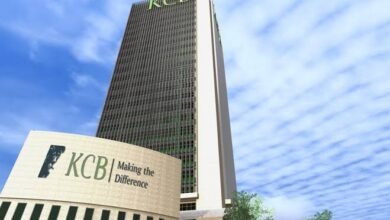
The Central Bank of Kenya (CBK) has admitted that suspending bad loan accounts from the Credit Reference Bureaus’ (CRB) records would adversely affect loan provisions by banks.
The CBK admitted this risk on the sideline of its directive for the CRBs to suspend from listing, all defaulted loans bellow Ksh.5 million for a 12-month period.
“The suspension could adversely impact the provision of credit by banks to the target group, as they will be unable to distinguish between the good and bad borrowers during the suspension period,” said CBK in a statement to newsrooms.
CBK, however, likened the measure to the times of interest rate caps which existed between the year 2016 to 2019 that saw rationing of credit in the country.
According to economic experts, the directive is only meant to take the country backward with regards to credit risk, without considering the strides it has made to ensure clear and sufficient access to credit.
Arnold Ngusale, Microfinance Banker and Economic Analyst, the move may create a loophole in accessing credit, proving a high risk for lenders.
“CRB listing helps you have a full appraisal of the client, if you remove that you have a massive loophole in which a lender will not have a credit report of the client,” said Ngusale.
Tommy Randall, a policy analyst on the other hand said the directive creates a dent on access to credit and that banks will be reluctant to lend to borrowers.
According to Randall, banks will not be in a position to assess customer’s credit worthiness without a credit report, a document obtained from CRBs based.
“Wanjiku may not have any history with any bank but needs money. but President Kenyatta’s policy will reduce the money supply in the market which Wanjiku needs,” said Randall.
Randal also said that “if you are telling a lender that the only information Wanjiku has to offer is information because she does not have collateral, it will lock her out of the market because the lender will shift credit elsewhere where it’s less risky.

CBK has enforced President Uhuru Kenyatta’s directive when he ordered the National Treasury and all financial institutions to work out a moratorium that will see Micro Small and Medium Enterprises (MSMEs) with less than Ksh.5 million have their information undisclosed to Kenya’s three CRB.
The suspension will stay in force for a year lasting September 30, 2022.
“CBK announces the suspension for a period of twelve months, of the listing of negative credit information for borrowers with loan below Ksh.5 million, whose loans were performing previously, but have become non-performing from October 1, 2021,” reads a statement in part.
Loans that were performing, but became non-performing and fall within the given credit threshold would not lead to blacklisting by CRBs.
Banks will now have to adopt a risk- based pricing approach that will consider borrowers’ credit reports in the pricing of loans.
CRBs will also have to generate borrowers’ credit scores that lenders can use to assess their credit worthiness.
Despite the CBK admitting high credit risk related to the suspension, it said there was need to provide relief to struggling MSMEs in the country while safeguarding the sustainability of Credit Information System (CIS) framework.
CIS is set to bridge the information gap about borrowers’ creditworthiness by considering the borrower’s credit history and allowing credit to be priced accordingly.





